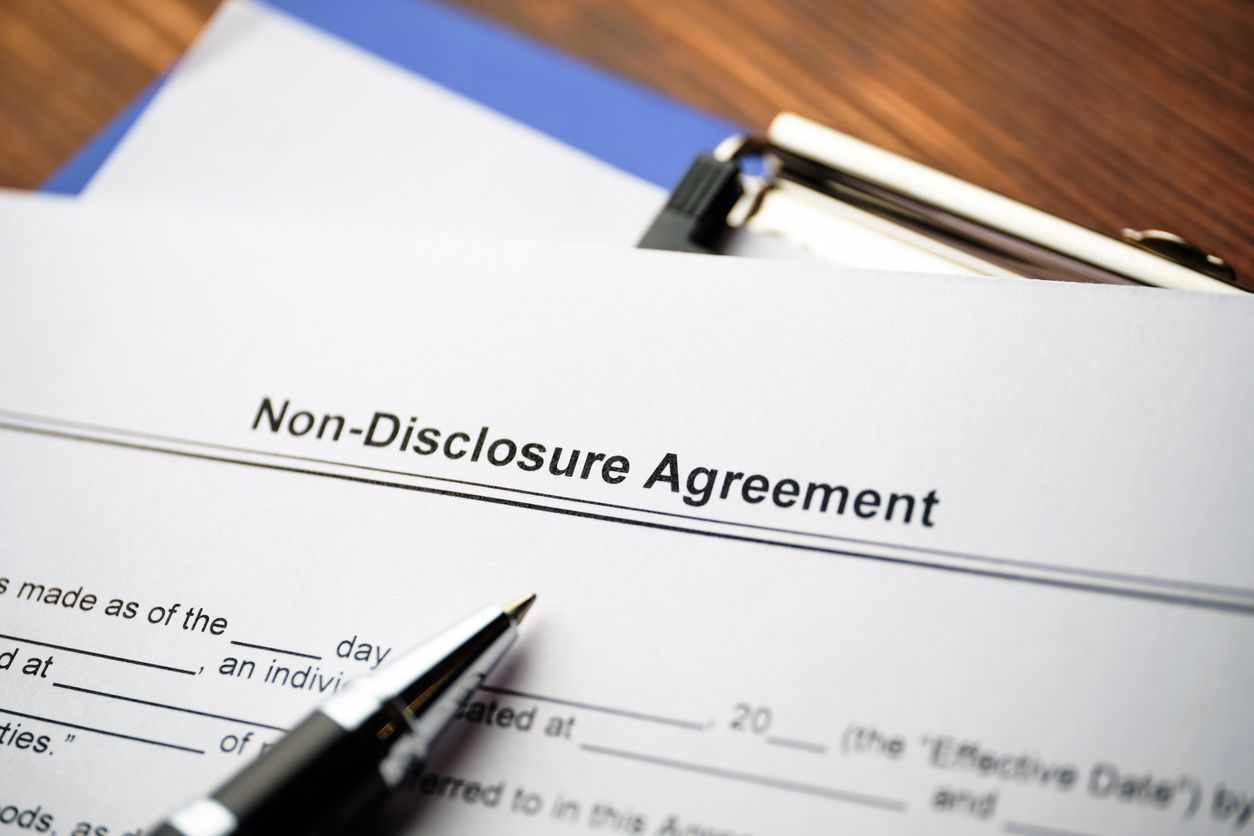Blog







FROM OUR CLIENTS

Slide Title
My husband and I were referred to Johnstone Adams in the spring of last year. We are working very closely with Jessica Welch and Greg Watts on an ongoing and unwanted family estate matter. Ms. Welch and Mr. Watts have been so professional and knowledgeable. In addition, considering the nature of the suit, Jessica has provided my husband and me with peace of mind we didn’t think was possible during this extremely stressful time of our lives. She is an amazing trial attorney. They have gone above and beyond. To sum it up, I have nothing but the utmost respect and appreciation for them. I would strongly recommend either of them to my dearest friends and family members. I’m so thankful that we stumbled upon them. I’m actually going to miss Jessica Welch when this is all over.”
I am currently using this law firm and they are informative, keep me up to date with my case, and return your calls/emails immediately. I am very satisfied. My wife and I approached Johnstone Adams to help us make a better-informed decision regarding her immigration. They have been a truly invaluable asset. They brought their knowledge, experience, confidence, and calm demeanor to the process, which put our minds at ease. The worry and anxiety that we were facing melted away, and we have been, literally, hand-held during this daunting process. We can’t thank or recommend Johnstone Adams enough and look forward to continuing to use their services in the future.
Johnstone Adams was a great help when it came to drawing up our family’s will and advanced directives prior to the birth of our first son. These are certainly things that no one wants to think about, but the process was easy. They were professional and knowledgeable, answering all of our questions along the way with compassion and sensitivity. Johnstone Adams responded quickly to any questions and was easy to get in touch with! We would highly recommend them for any legal work!! Jessica’s advice and assistance with our family’s interests in a probate matter was exceptional from beginning to end– always thoughtful, responsive and efficient, and focused and timely.
It was a genuine pleasure for the doubtless incorrigibly demanding old lawyer that I am to have a professional of her outstanding caliber assisting me on this matter—both generally and in my role as executor in particular—in a jurisdiction unfamiliar to me and on a matter completely outside of my own experience and expertise. I might also point out that she was really excellent in interfacing, always in a timely and solution-oriented manner, with other parties involved in our matter to help keep our initiatives on track—including attorneys dealing with the disposition of residential real estate and financial assets. Jessica and her excellent assistant, Shelly Perrone, also offered and provided pragmatic and efficient solutions to logistical and execution issues made it significantly more challenging than usual given the COVID-19 crisis and my own location far from Mobile– in Paris, France.
I highly recommend attorney Rick La Trace. Aside from being professional, polite, and yet firm, Rick is a combination of knowledge, detail, and responsiveness. (In my opinion, there are very few professionals who have ALL three qualities. Rick is one of the very few.) What makes him stand apart from the rest, is that he takes the time to listen to his client’s concerns (no matter how “trivial”). He educates client’s on how the law works, shares his opinions, including the pros and cons of each. We would definitely use Rick’s services again, and highly recommend him for anyone who wants a lawyer that they can trust to thoroughly handle their case from start to finish, even down to the small details. You can tell from working with Rick that he’s not just about getting paid for his services, but that he enjoys working through problems and finding creative solutions for his clients. Also, I highly recommend the Johnstone Adams, LLC systems and processes. Shelly and Cathy were on top of things. I give Rick and Johnstone Adams more than five stars.

Slide Title
My husband and I were referred to Johnstone Adams in the spring of last year. We are working very closely with Jessica Welch and Greg Watts on an ongoing and unwanted family estate matter. Ms. Welch and Mr. Watts have been so professional and knowledgeable. In addition, considering the nature of the suit, Jessica has provided my husband and me with peace of mind we didn’t think was possible during this extremely stressful time of our lives. She is an amazing trial attorney. They have gone above and beyond. To sum it up, I have nothing but the utmost respect and appreciation for them. I would strongly recommend either of them to my dearest friends and family members. I’m so thankful that we stumbled upon them. I’m actually going to miss Jessica Welch when this is all over.”
I am currently using this law firm and they are informative, keep me up to date with my case, and return your calls/emails immediately. I am very satisfied. My wife and I approached Johnstone Adams to help us make a better-informed decision regarding her immigration. They have been a truly invaluable asset. They brought their knowledge, experience, confidence, and calm demeanor to the process, which put our minds at ease. The worry and anxiety that we were facing melted away, and we have been, literally, hand-held during this daunting process. We can’t thank or recommend Johnstone Adams enough and look forward to continuing to use their services in the future.
Johnstone Adams was a great help when it came to drawing up our family’s will and advanced directives prior to the birth of our first son. These are certainly things that no one wants to think about, but the process was easy. They were professional and knowledgeable, answering all of our questions along the way with compassion and sensitivity. Johnstone Adams responded quickly to any questions and was easy to get in touch with! We would highly recommend them for any legal work!! Jessica’s advice and assistance with our family’s interests in a probate matter was exceptional from beginning to end– always thoughtful, responsive and efficient, and focused and timely.
It was a genuine pleasure for the doubtless incorrigibly demanding old lawyer that I am to have a professional of her outstanding caliber assisting me on this matter—both generally and in my role as executor in particular—in a jurisdiction unfamiliar to me and on a matter completely outside of my own experience and expertise. I might also point out that she was really excellent in interfacing, always in a timely and solution-oriented manner, with other parties involved in our matter to help keep our initiatives on track—including attorneys dealing with the disposition of residential real estate and financial assets. Jessica and her excellent assistant, Shelly Perrone, also offered and provided pragmatic and efficient solutions to logistical and execution issues made it significantly more challenging than usual given the COVID-19 crisis and my own location far from Mobile– in Paris, France.
I highly recommend attorney Rick La Trace. Aside from being professional, polite, and yet firm, Rick is a combination of knowledge, detail, and responsiveness. (In my opinion, there are very few professionals who have ALL three qualities. Rick is one of the very few.) What makes him stand apart from the rest, is that he takes the time to listen to his client’s concerns (no matter how “trivial”). He educates client’s on how the law works, shares his opinions, including the pros and cons of each. We would definitely use Rick’s services again, and highly recommend him for anyone who wants a lawyer that they can trust to thoroughly handle their case from start to finish, even down to the small details. You can tell from working with Rick that he’s not just about getting paid for his services, but that he enjoys working through problems and finding creative solutions for his clients. Also, I highly recommend the Johnstone Adams, LLC systems and processes. Shelly and Cathy were on top of things. I give Rick and Johnstone Adams more than five stars.

Slide Title
My husband and I were referred to Johnstone Adams in the spring of last year. We are working very closely with Jessica Welch and Greg Watts on an ongoing and unwanted family estate matter. Ms. Welch and Mr. Watts have been so professional and knowledgeable. In addition, considering the nature of the suit, Jessica has provided my husband and me with peace of mind we didn’t think was possible during this extremely stressful time of our lives. She is an amazing trial attorney. They have gone above and beyond. To sum it up, I have nothing but the utmost respect and appreciation for them. I would strongly recommend either of them to my dearest friends and family members. I’m so thankful that we stumbled upon them. I’m actually going to miss Jessica Welch when this is all over.”
I am currently using this law firm and they are informative, keep me up to date with my case, and return your calls/emails immediately. I am very satisfied. My wife and I approached Johnstone Adams to help us make a better-informed decision regarding her immigration. They have been a truly invaluable asset. They brought their knowledge, experience, confidence, and calm demeanor to the process, which put our minds at ease. The worry and anxiety that we were facing melted away, and we have been, literally, hand-held during this daunting process. We can’t thank or recommend Johnstone Adams enough and look forward to continuing to use their services in the future.
Johnstone Adams was a great help when it came to drawing up our family’s will and advanced directives prior to the birth of our first son. These are certainly things that no one wants to think about, but the process was easy. They were professional and knowledgeable, answering all of our questions along the way with compassion and sensitivity. Johnstone Adams responded quickly to any questions and was easy to get in touch with! We would highly recommend them for any legal work!! Jessica’s advice and assistance with our family’s interests in a probate matter was exceptional from beginning to end– always thoughtful, responsive and efficient, and focused and timely.
It was a genuine pleasure for the doubtless incorrigibly demanding old lawyer that I am to have a professional of her outstanding caliber assisting me on this matter—both generally and in my role as executor in particular—in a jurisdiction unfamiliar to me and on a matter completely outside of my own experience and expertise. I might also point out that she was really excellent in interfacing, always in a timely and solution-oriented manner, with other parties involved in our matter to help keep our initiatives on track—including attorneys dealing with the disposition of residential real estate and financial assets. Jessica and her excellent assistant, Shelly Perrone, also offered and provided pragmatic and efficient solutions to logistical and execution issues made it significantly more challenging than usual given the COVID-19 crisis and my own location far from Mobile– in Paris, France.
I highly recommend attorney Rick La Trace. Aside from being professional, polite, and yet firm, Rick is a combination of knowledge, detail, and responsiveness. (In my opinion, there are very few professionals who have ALL three qualities. Rick is one of the very few.) What makes him stand apart from the rest, is that he takes the time to listen to his client’s concerns (no matter how “trivial”). He educates client’s on how the law works, shares his opinions, including the pros and cons of each. We would definitely use Rick’s services again, and highly recommend him for anyone who wants a lawyer that they can trust to thoroughly handle their case from start to finish, even down to the small details. You can tell from working with Rick that he’s not just about getting paid for his services, but that he enjoys working through problems and finding creative solutions for his clients. Also, I highly recommend the Johnstone Adams, LLC systems and processes. Shelly and Cathy were on top of things. I give Rick and Johnstone Adams more than five stars.
WHY CHOOSE OUR FIRM
Dedicated Quality & Commitment
Only a few special law firms in the U.S. have provided exceptional representation to businesses for more than a century. Johnstone Adams, LLC is one of these rare, distinguished firms. Since 1897, the firm has successfully advanced from a local firm serving South Alabama into a dynamic regional powerhouse equipped to fulfill most legal needs of its diverse client base.
Legacy Of Excellence
Each attorney takes great pride in continuing the firm’s legacy of excellence. By consistently providing sophisticated, aggressive, and innovative legal solutions to every client in each service area, Johnstone Adams attorneys personally ensure that their firm’s long, storied past is only the beginning.
Exemplary Client Service & Efficiency
With a focus on exemplary client service and efficiency, Johnstone Adams attorneys guide clients through legal matters from the first conversation about strategy to successful completion in the following critical service areas: Health Care, Employment, Labor & Workers’ Compensation, Insurance Defense Litigation, Commercial Litigation, Corporate Transactions, Real Estate Litigation & Transactions, Construction, Oil & Gas, Tax, Trusts & Estate Planning, Banking & Finance, Immigration, and Forest Use.
LATEST FROM THE BLOG
SIGN UP FOR OUR NEWSLETTER
We will get back to you as soon as possible.
Please try again later.
GET IN TOUCH
TELEPHONE: (251) 432-7682 | TOLL FREE : (844) 682-7682
We will get back to you as soon as possible.
Please try again later.
Location:
1 Saint Louis St, Suite 4000 Mobile, AL 36602
Other Phone:
844-682-7682
Fax:







